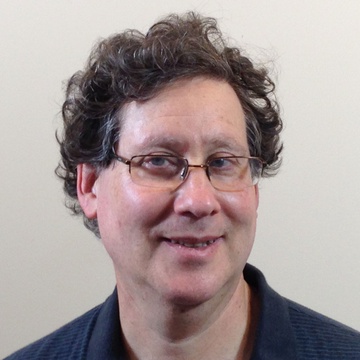health care
See the following -
Health Games Platforms Mature In Preparation For Mainstream Adoption
For the past several years, researchers have strived to create compelling games that improve behavior, reduce stress, or teach healthy responses to difficult life situations...These efforts have born fruit, and clinical trials have shown the value of many such games. Ben Sawyer, who founded the Games for Health conference more than 10 years ago, is watching all the pieces fall into place for the widespread adoption of games. Business plans, platforms, and the general environment for the acceptance of games (and other health-related apps) are coming together. Read More »
- Login to post comments
Healthcare Lessons from the Data Sages at Strata
Most healthcare clinicians don't often think about donating or sharing data. Yet, after hearing Stephen Friend of Sage Bionetworks talk about involving citizens and patients in the field of genetic research at StrataRx 2012, I was curious to learn more...With this in mind, I arrived at this February's Strata conference wondering what I could extrapolate from other more sophisticated data users to healthcare.
- Login to post comments
Hundreds Of Health Care Professionals In Field Of Spinal Cord Injury, Multiple Sclerosis And ALS Health Care Gather In Las Vegas For Paralyzed Veterans Of America’s Annual Summit + EXPO
Beginning tomorrow, Paralyzed Veterans of America will host its 4th annual Summit + EXPO, bringing together hundreds of researchers, clinicians and health care professionals to learn about the latest treatments and therapies in spinal cord injury/dysfunction (SCI/D), multiple sclerosis (MS) and ALS health care...
- Login to post comments
Iowa Is Voting on Healthcare Tonight
 Health care is no longer about us. Health care is about waste, fraud and abuse. Health care is about “bending the curve”. Health care is about global competitiveness of corporations. Health care is about carving up a $3 trillion opportunity. Health care is about private equity, mezzanine funding, return on investment, valuations and public offerings. Health care is about the economy, and the economy is no longer about us.
Health care is no longer about us. Health care is about waste, fraud and abuse. Health care is about “bending the curve”. Health care is about global competitiveness of corporations. Health care is about carving up a $3 trillion opportunity. Health care is about private equity, mezzanine funding, return on investment, valuations and public offerings. Health care is about the economy, and the economy is no longer about us.
- Login to post comments
Is Single-Payer the Right Payer?
 As is customary for every administration in recent history, the Trump administration chose to impale itself on the national spear known as health care in America. The consequences so far are precisely as I expected, but one intriguing phenomenon is surprisingly beginning to emerge. People are starting to talk about single-payer. People who are not avowed socialists, people who benefit handsomely from the health care status quo seem to feel a need to address this four hundred pound gorilla, sitting patiently in a corner of our health care situation room. Why?
As is customary for every administration in recent history, the Trump administration chose to impale itself on the national spear known as health care in America. The consequences so far are precisely as I expected, but one intriguing phenomenon is surprisingly beginning to emerge. People are starting to talk about single-payer. People who are not avowed socialists, people who benefit handsomely from the health care status quo seem to feel a need to address this four hundred pound gorilla, sitting patiently in a corner of our health care situation room. Why?
- Login to post comments
lifeIMAGE and the Quest for Medical Imaging Exchange
Medical imaging--first X-Rays, and later CAT scans, ultrasound, and MRIs--was one of the first areas of medicine to computerize, and images are routinely distributed in digital format around the world for diagnosis, training, and storage. Read More »
- Login to post comments
Microsoft and Partners Combine the Cloud, AI, Research and Industry Expertise to Focus on Transforming Health Care
 ...Healthcare NExT, a new initiative to dramatically transform health care, will deeply integrate greenfield research and health technology product development, as well as establish a new model at Microsoft for strategic health industry partnerships. Through these collaborations between health care partners and Microsoft’s AI and Research organization, our goal is to enable a new wave of innovation and impact using Microsoft’s deep AI expertise and global-scale cloud.This initiative includes investments in resources for our partners to capture new opportunities to apply AI to healthcare, such as the Microsoft AI in Health Partner Alliance, an expanding group of partners focused on advancing health technology. Alliance members will receive unique training and access to Microsoft technologies, engineering expertise and data sets. Read More »
...Healthcare NExT, a new initiative to dramatically transform health care, will deeply integrate greenfield research and health technology product development, as well as establish a new model at Microsoft for strategic health industry partnerships. Through these collaborations between health care partners and Microsoft’s AI and Research organization, our goal is to enable a new wave of innovation and impact using Microsoft’s deep AI expertise and global-scale cloud.This initiative includes investments in resources for our partners to capture new opportunities to apply AI to healthcare, such as the Microsoft AI in Health Partner Alliance, an expanding group of partners focused on advancing health technology. Alliance members will receive unique training and access to Microsoft technologies, engineering expertise and data sets. Read More »
- Login to post comments
Not All Snake Oil Is Digital
 A different take on "snake oil" in health care was a thoughtful piece in Health Affairs, by David Newman and Amanda Frost, discussing the quality measurement morass in health care. They cite a study that estimated we spend some $15.4b annually collecting several thousand different quality measures, few of which have any meaning to consumers and all-too-few of which seem to be used to actively improve quality. It isn't that they don't think we should be measuring quality -- far from it -- but, rather: "Patients should not be able to choose substandard quality care, and substandard quality care should not be allowed to be offered in the market." Now, there's a novel concept!
A different take on "snake oil" in health care was a thoughtful piece in Health Affairs, by David Newman and Amanda Frost, discussing the quality measurement morass in health care. They cite a study that estimated we spend some $15.4b annually collecting several thousand different quality measures, few of which have any meaning to consumers and all-too-few of which seem to be used to actively improve quality. It isn't that they don't think we should be measuring quality -- far from it -- but, rather: "Patients should not be able to choose substandard quality care, and substandard quality care should not be allowed to be offered in the market." Now, there's a novel concept!
- Login to post comments
OSEHRA 2014: Taking The Pulse Of The Open Health IT At The OSEHRA Open Source Summit
Earlier this month, the 2014 OSEHRA Open Source Summit took place in Bethesda, MD, gathering global leaders in both public and private health IT to discuss the future of electronic health records (EHR) and open source initiatives in health care. This three-day conference is hosted by OSEHRA, the Open Source Electronic Health Record Alliance, which was formed by the U.S. Department of Veterans Affairs (VA) to support the open source community around its VistA EHR – the largest open source EHR in the U.S. I spoke with OSEHRA President and CEO Dr. Seong K. Mun about the activity that took place at this month’s event and the evolving role of open source within health IT.
- Login to post comments
Radiology Initiatives Illustrate Uses for Open Data and Open AI research
 Fans of data in health care often speculate about what clinicians and researchers could achieve by reducing friction in data sharing. What if we had easy access to group repositories, expert annotations and labels, robust and consistent metadata, and standards without inconsistencies? Since 2017, the Radiological Society of North America (RSNA) has been displaying a model for such data sharing. That year marked RSNA's first AI challenge. RSNA has worked since then to make the AI challenge an increasingly international collaboration. Organizers of each challenge curate and annotate medical imaging studies and ask the research community to come up with models to answer important questions.
Fans of data in health care often speculate about what clinicians and researchers could achieve by reducing friction in data sharing. What if we had easy access to group repositories, expert annotations and labels, robust and consistent metadata, and standards without inconsistencies? Since 2017, the Radiological Society of North America (RSNA) has been displaying a model for such data sharing. That year marked RSNA's first AI challenge. RSNA has worked since then to make the AI challenge an increasingly international collaboration. Organizers of each challenge curate and annotate medical imaging studies and ask the research community to come up with models to answer important questions.
- Login to post comments
Say No To Bureaucrats And Yes To Direct Care
Yes, it really is time to revoke the health care mandates issued by bureaucrats who are not in the profession of actual healing. Daniel F. Craviotto Jr. writes in the Wall Street Journal, “In my 23 years as a practicing physician, I’ve learned that the only thing that matters is the doctor-patient relationship.”...
- Login to post comments
State of Health: Why A Global Approach Is Key To Solving Health Care’s Biggest Challenges
A lot of attention has been paid to the idea that patients, in particular those from the U.S., can now travel to other countries to get surgery or other treatments at lower cost than what’s available locally. But the idea that patients will be likely to travel to find the best deal in treatment, no matter where it is, has been overblown in my opinion (and as recently outlined in The Economist).
- Login to post comments
The (Profitable) Potential For Open Health-Care Data
Despite the $20 billion taxpayer investment in health information technology, it still has not reached its full potential. Most offerings are not easy to use or properly integrated into the daily workflow of clinicians...
- Login to post comments
The Appeal of Graph Databases for Health Care
 A lot of valuable data can be represented as graphs. Genealogical charts are a familiar example: they represent people as boxes, connected by lines that represent parent/child or marriage relationships. In mathematics and computer science, graphs have become a discipline all their own. Now their value for health care is emerging. Graph computing made a significant advance this past February in the form of a Graph Data Science (GDS) library for the free and open source Neo4j graph database. Graph databases are proving their value in clinical research and public health; I wonder whether they can also boost analytics for providers. This article explains what's special about graph databases, and some applications in health care highlighted by recent webinars offered by the Neo4j company.
A lot of valuable data can be represented as graphs. Genealogical charts are a familiar example: they represent people as boxes, connected by lines that represent parent/child or marriage relationships. In mathematics and computer science, graphs have become a discipline all their own. Now their value for health care is emerging. Graph computing made a significant advance this past February in the form of a Graph Data Science (GDS) library for the free and open source Neo4j graph database. Graph databases are proving their value in clinical research and public health; I wonder whether they can also boost analytics for providers. This article explains what's special about graph databases, and some applications in health care highlighted by recent webinars offered by the Neo4j company.
- Login to post comments
The Drupal API turns a CMS into a True Health Care Enterprise Application
 At the company where I work, Achieve Internet, we view Drupal as more than just a CMS — we see it as a powerful web application platform with capabilities to integrate multiple sources of information. Sporting a far-reaching and flexible API, Drupal can link together other platforms that provide APIs, such as enterprise productivity systems or electronic health records (EHRs), and essentially provide Drupal’s web pages as an interface to these systems on both a read and write basis. The growth of the platform and the community has put Drupal in a position to revolutionize the concept of a traditional CMS in one market sector after another, from the media and entertainment industries to education, travel, and government.
At the company where I work, Achieve Internet, we view Drupal as more than just a CMS — we see it as a powerful web application platform with capabilities to integrate multiple sources of information. Sporting a far-reaching and flexible API, Drupal can link together other platforms that provide APIs, such as enterprise productivity systems or electronic health records (EHRs), and essentially provide Drupal’s web pages as an interface to these systems on both a read and write basis. The growth of the platform and the community has put Drupal in a position to revolutionize the concept of a traditional CMS in one market sector after another, from the media and entertainment industries to education, travel, and government.
Read More »
- Login to post comments